Are AFCI required with panel upgrade?
Hi,
We are under the 2008 code. I am being required by the home owner insurance company to replace a panel that has fuses to one that uses circuit breakers. I was wondering if the electrical inspector will require me to install AFCI breakers to the existing circuits?
Thanks,
Nick
Comments (34)
Related Professionals
Augusta General Contractors · Columbus General Contractors · Klamath Falls General Contractors · Oneida General Contractors · Parkersburg General Contractors · Red Wing General Contractors · Riverdale General Contractors · Rolling Hills Estates General Contractors · Franklin Solar Energy Systems · Hialeah Gardens Home Automation & Home Media · Irvine Home Automation & Home Media · Pittsburgh Home Automation & Home Media · Port Washington Home Automation & Home Media · Severn Home Automation & Home Media · Winchester Home Automation & Home Mediabrickeyee
13 years agoThe AHJ may require them, along with GFCI devices for the kitchen counter receptacles.
It is one of the 'problems' that crop up when updating part of a service.
Many AHJs will demand everything about the panel be brought up to the code in effect.
AFCI breakers are not that much of a problem (just the addition $$).
The AHJ will often push for as much as they can get.
petey_racer
13 years agoThe AHJ can push for what ever they want, but they'd better provide a code reference to back it up.
brickeyee
13 years agoAFCI and GFCIs have been in the code for how long now?
Many AHJs use any opportunity they get to force things to be brought up to the most recent code in effect.
I have run into a few that would not allow a main panel upgrade without decommissioning ALL the K&T.
The AHJ lost that one when I pinged his boss since K&T is still in the code.
Ron Natalie
13 years agoAFCIs didn't really exist before NEC 2005. When your jurisdiction started requiring them probably is some time in 2007 or later. GFCIs go back decades but the rules have changed over the years. In the past you could chain one GFCI through to all the required locations (for example, I have one that feeds all the bathrooms and then all the outside receptacles).
The problem is that AFCI and GFCI aren't panel issues (even though they may be installed there). They are circuit issues. You're not changing or upgrading the circuits, so it really ought not to be required. What happens if your circuit isn't compliant (like the afore mentioned GFCI circuit that feeds receptacles in bathrooms and NON-bathroom areas). What happens if a branch circuit feeds places that are mandated to be AFCI protected and also places that have a GFCI mandate? They aren't interchangeable.
bus_driver
13 years agoRecently I had concern about Article 110.26(E)Exception, 2008 NEC. Prior to beginning work, I went to the inspection department to discuss the code provision. Large department with inspectors having assigned territories and reputation for making very restrictive interpretations of the code. I see the exception in question as being very permissive. The inspector for my specific work address was not in and another started explaining to me that the exception was applicable only if no new circuits were being added, etc- a very restrictive interpretation. Before I left, the specific inspector came in and basically told me the same thing that I determined from reading the NEC. Much less restrictive. Many contractors are cowed by inspectors since they fear the outcome of future encounters.
texasredhead
13 years agoI'm not sure I understand the reluctance to install AFCIs which are now required in all living spaces on new construction. As I hope the OP knows, most often an arc fault will not trip a standard breaker which can result in fires. To the OP, as long as you are upgrading your panel and hopefully going to 200 amp service, the AFCIs, IMO are a no brainer.
manhattan42
13 years agoI'm an electrical inspector with a large 3rd party code inspection company.
We do not require AFCI breakers to be installed on service panel upgrades because the NEC does not require AFCI breakers to be installed on service panel upgrades.
ronnatalie has it right. AFCIs are only required if adding new circuits.
As for texasredhead's comments, I disagree.
While adding AFCI protected circuits may seem like a 'no-brainer', AFCI breakers are very expensive compared to standard breakers and cost around $35-$50 each. This can turn a rather inexpensive service upgrade into a cost prohibitive one.
If one installs a 40 slot panel, and let's say 5 circuits are not required to be AFCI protected (IE: 2 small appliance circuits, bathroom circuits, garage circuits, unfinished basement receptacles, dedicated appliance circuits...)
The difference in cost to add or not add 35 AFCI breakers can be as much as $1750.
That would stop most people from considering the service upgrade right then and there.
It might also seem like a 'no-brainer' to remove all the knob and tube wiring in the house, or replace all the ungrounded receptacles with tamper-resistant grounded ones...but where does it end?
That's why codes do not require existing systems to be changed everytime there is a new innovation that comes down the road.
Are AFCI's a good idea?
Yes, certainly.
Should they be or are they required when upgrading an existing service?
No.
petey_racer
13 years agoI also disagree with TexRed.
This is my feeling exactly:
"It might also seem like a 'no-brainer' to remove all the knob and tube wiring in the house, or replace all the ungrounded receptacles with tamper-resistant grounded ones...but where does it end?"
There are TONS of "no brainers" that can be thought of in an old house if you really want them.
texasredhead
13 years agoAt the very least, I would install AFCIs on bedroom circuits. $1,750? A real bargain considering the potential cost of a fire from a person who went through a $40,000 house fire in 1980!
brickeyee
13 years ago"We do not require AFCI breakers to be installed on service panel upgrades because the NEC does not require AFCI breakers to be installed on service panel upgrades. "
So what.
There are MANY AHJs that will demand at least limited upgrades when you change out a main panel.
I guess your AHJs could care less.
brickeyee
13 years agoIn the opening of the NEC are words that it is not an instruction manual.
It only tells how the work is to be completed, not WHAT work is to be completed.
petey_racer
13 years ago"There are MANY AHJs that will demand at least limited upgrades when you change out a main panel.
I guess your AHJs could care less. "
Unless they can back up their requests there is nothing extra an AHJ can demand you do. Requiring AFCI's in the case of a panel or service change is most certainly "extra".
It has absolutely NOTHING to do with caring.
texasredhead
13 years agoOk Nick, here's the issue, who is going to do the panel upgrade? You, or a licensed electrician? If the latter, he/she needs to pull a permit. Licensed electrician SHOULD know what is required to pass inspection in your local jurisdiction. I know what it is in Dallas that when you upgrade a service, you lose the grandfather exemption making it almost like new construction.
If your work involves a sizeable addition, the entire house comes under the rules for new construction. Again, this is Dallas.
manhattan42
13 years ago"There are MANY AHJs that will demand at least limited upgrades when you change out a main panel.
I guess your AHJs could care less."
AHJ's are inspectors...not babysitters or nursemaids.
Like it or not, AHJ's are law enforcement officers, and our authority ends where the Code law ends.
It has nothing to do with 'caring'. It only has to do with what I or any other AHJ can and cannot legally require.
We have no legal authority to require anything beyond what is written in that adopted Code...and when we do...we subject ourselves to the same liability and punishment that awaits any other lawbreaker.
Lot's of things I'd like to see enforced that I cannot enforce.
I can suggest them...
Highly recommend them...
Tell the installer or his customer it's not the way I would do things....
Even submit a code change recommendation for the next Code publication...But once the installer and owner make their own decisions, and those decisions meet the Code minimum.
The discussion ends, the installation is approved, and I walk away.
The NEC does not require the installation of AFCIs in service panels that are being upgraded.
Period.
Any AHJ who does require AFCIs in a service upgrade is enforcing his own personal opinions....not any Code...and subjects himself to a lot of personal legal liability...including loss of certification, fines, or even imprisonment...by so doing.
And we AHJs do care greatly about that...
bus_driver
13 years agoI am ambivalent about many code requirements and am generally opposed to most code additions. It is easy to require additional things if the cost is being borne by others. Several times in the life of my wife and myself, especially during our respective childhoods, we lived in premises we could (just barely) afford that were quite substandard. The alternative was living under a bridge. But we did desire better, worked for it and now do enjoy better. No government handouts or interference. Either of those would have hindered or prevented our rise from poverty. Code compliance costs cold hard cash. Many code changes are lobbied by companies and unions wanting to require by law the use of their products and services.
texasredhead
13 years agoTo the OP, is it safe to assume that you just purchased the home and your homeowners insurance in inspecting the home saw the outdated panel and required an update as a contingency to insure the home? I further assume if the house is old enough to have a fuse box, the wiring might be suspect. How about GFCIs on the kitchen counter receptacles and in the bathrooms? How big is the house and how many circuits handle the house? Unless I am making false assumptions, AFCIs may be the least of your troubles.
bus_driver
13 years agoIt is so often assumed that fuses are inferior protection. Definitely not true. Fuses do invite tampering more than do circuit breakers due to expense of replacement and the frustration that results if replacements are not at hand. Fuses are less convenient. Correctly sized fuses will react more reliably to overloads and short circuits than will circuit breakers.
Ron Natalie
13 years agoExactly my point Tex, if he's got a fusebox, it's doubtful he has more than a dozen branch circuits. There are way more issues to worry about than AFCI.
brickeyee
13 years ago"Any AHJ who does require AFCIs in a service upgrade is enforcing his own personal opinions....not any Code...and subjects himself to a lot of personal legal liability...including loss of certification, fines, or even imprisonment...by so doing."
The NEC is actually silent on this.
It does allow grandfathering, but leaves the extent up to the AHJ, which in most jurisdictions carries the weight of law (even if only administrative law).
Many jurisdictions passed laws requiring GFCI devices be installed on kitchen counter circuits when the property changes hands, or ANY electrical permit is pulled against the address.
NO grandfathering around the rule.The NEC does not cover everything, and many jurisdictions amend it when they adopt.
I have seen repeated refusals to allow K&T to be fed from new panels in numerous states and localities.
The AHJs want the K&T taken out of service.
While it is arguable that allowing the panel upgrade would improve the safety of even a K&T installation, the decision was made that the K&T had to go.It was one more way to apply pressure to upgrade installations.
garynpinellas
13 years agoI agree with bus driver and brickeyee. All electrical is still good as long as it's serviceable, don't care how old it is. The things i have seen burn down a house are, battery charges, insink instant hot water, GFI plug, Electric powered attic roof vents, None of these things are allowed in my house, along with a Ford that did burn up in my back yard. No key in it, No gfi or arc faults allowed!
texasredhead
13 years agoAS best as I can tell, there have been 23 spectulating posts since the OP's original post and not another word from Nick. But we've all told him what to do. His insurance company just didn't show up out of the blue. He's either just bought the place or changed carriers. What you all think the inspector should do is irrevalent. It's what goes in Nick's neighborhood.
manhattan42
13 years agoBrickeye said:
""Any AHJ who does require AFCIs in a service upgrade is enforcing his own personal opinions....not any Code...and subjects himself to a lot of personal legal liability...including loss of certification, fines, or even imprisonment...by so doing."
The NEC is actually silent on this.It does allow grandfathering, but leaves the extent up to the AHJ, which in most jurisdictions carries the weight of law (even if only administrative law).
Many jurisdictions passed laws requiring GFCI devices be installed on kitchen counter circuits when the property changes hands, or ANY electrical permit is pulled against the address.
NO grandfathering around the rule.The NEC does not cover everything, and many jurisdictions amend it when they adopt.
I have seen repeated refusals to allow K&T to be fed from new panels in numerous states and localities.
The AHJs want the K&T taken out of service.
While it is arguable that allowing the panel upgrade would improve the safety of even a K&T installation, the decision was made that the K&T had to go.It was one more way to apply pressure to upgrade installations."
We are probably in agreement here but for differing reasons.
While the NEC may be 'silent' as to when AFCI devices might be required in existing installations, the NEC is not a stand alone code and electrical installations in existing homes are actually also regulated by other codes.
Where adopted, for example, the International Existing Building Code would prevail on electrical issues where the NEC is silent and for existing buildings.
So too would state or municipal amendments to the NEC or other adopted electrical Code.
In my state, it is not legal for any AHJ to require any portion of an existing electrical system in good working order to be changed if only a service panelbox is being changed or upgraded.
The NEC only applies to 'new installations' and changing a fusebox to a circuit breaker panel is not considered a 'new installation'....by law. It is considered an 'alteration to an existing installation' which does not require the use of AFCIs.
The point: It is still not the AHJs opinion that prevails or even matters here....It is what is legally adopted by Code.
We cannot require AFCIs in panel upgrades, the replacement of K&T wire, Federal Pacific panels or any other part of an electrical system in good working even if we wanted to.
And it would be a violation of our Code and law if we did.
Bottom line:
It still has nothing to do with the AHJs "personal opinion" or how much he "cares".
It all has to do with law and the Code.
And any AHJ enforcing his own personal opinions and not any law places himself in serious legal jeopardy.
texasredhead
13 years agoManhattan, we all know that. Give it a rest. The OP has said nothing further!
pharkus
13 years agoOne of our local insurance companies often demands service upgrades, but they don't really care that it's fuses - they care that it's 60A. 100A fuse boxes are acceptable.
I've also seen a service with fuses that I was quite impressed by, everything was done almost the way we'd do it today, with seperate dedicated circuits for all of the major appliances. There were two boxes, each having 12 spaces and three pullouts for 240V stuff, four of which were used. I have no idea who installed it, that person may very well be dead and gone by now, but I'd like to thank them if not.
manhattan42
13 years ago"Manhattan, we all know that. Give it a rest. The OP has said nothing further!"
Hey texasredhead: brickeye and I are having a valuable side conversation.
If that bothers you, then don't interject yourself into it! :)
And we all know the original poster hasn't been back...
So what?
There's a lot of competent, intelligent tradespeople sharing valuable information about service upgrades and AFCI protection despite whether the OP got anything from this thread....
texasredhead
13 years agoOK, let me tell you what goes on in Dallas. Many homes built in the 50s and back have the service wires hooked to the side of the house with ceramic insulaters going directly into the meter which is also screwed into the house with no meter box. There are many homes in my neighborhood still wired that way.
As an aside, if during a storm, perhaps a falling tree might pull all that "stuff" off the house, local code requires a modern service entrance be installed before power will be restored.
Now, when we are involved in a service upgrade, WE drop the service lines and disconnect the meter. We install a meter box and a new mast through the roof 4ft above the roof with a weatherhead. We run 2/0 up the mast from the meter box and corresponding cable to the panel. We then pull the service wires up to the mast and reconnect them using lugs.
There have been times that the service wires were no long enough. In those cases we call TXU and they come out and run longer service wires from the poll to the mast head and connect to our cables. Interesting enough, they will not reset the meter as they consider that to be our job.
In these situations, we are upgrading the service usually to 200 amps, installing a new service panel and modernizing the service including the installation of AFCIs in the bedrooms. Currently, that is what our inspectors require.
New construction is another matter totally.
manhattan42
13 years ago"In these situations, we are upgrading the service usually to 200 amps, installing a new service panel and modernizing the service including the installation of AFCIs in the bedrooms. Currently, that is what our inspectors require."
Personally, Im finding this discussion thread quite useful, and it has caused me to rethink my initial positions somewhat.
While the NEC does not require AFCIs at all in existing installations where no new circuits are added, Dallas City or Texas State electrical codes may have their own amendments making the installation of AFCIs in service upgrades mandatory.
What surprises me is that your inspectors aren't requiring upgrades on all circuits to habitable rooms in the house and not just bedrooms (2008 NEC requirement). They must be referencing the 2005 NEC or earlier additions in so doing?
-------------
In my state (Pennsylvania), residential alterations and repairs are completely exempt from the Pennsylvania Uniform Construction Code and therefore require no building permits. Service upgrades are therefore also totally exempt from code inspections and code compliance.But the electrical utility will not connect a service without inspection....so installers must have a 'non-code' inspection from us to get energized.
Under this 'non-code' inspection, we only inspect up to the first means of disconnect, so whatever happens on the load side is of no concern to us.
We only verify the service drop location, meter connections, service entrance conductors, grounding and bonding, etc... on service upgrades... and that's it.
Can't make anyone install AFCI or GFCI circuit protection.
Can't even do anything about visible electrical hazards on the load side of a service we might encounter.
We would have to file a complaint with the owner using the International Existing Building Code or a locally adopted Property Maintenance Code.
Personally, I think it is bad law...but it is the law...And in my State isn't about to change anytime soon.
[shrugs]
texasredhead
13 years agoTo take this a little further, the installation of hard wired smoke alarms is actually controlled by the Dallas fire marshall. All smoke alarms must be on a dedicated circuit so if one goes off they all go off. Primary locations are in the hallways just outside each bedroom. Each alarm must have a battery backup in case of a power outage. There has been much discussion on this board about hard wiring alarms on a lighting circuit but this is against code in Dallas.
As an aside, I serve as a city comnissioner for the city of Arlington, on the Electrical Code Board of Review. We actually set electrical code issues for our city. As an example, any new circuits in an existing structure or any new structures must be wired with 12/2, execpt of course where heavier cable is required. We also require master electricians to have their trucks clearly marked with their business name and address.
In the state if Texas, in most jurisdictions, a home owner can obtain a building permit. It matters of electrical issues, only a master electrician can pull a permit.
Just of few of the issues we deal with daily.
pharkus
13 years agomanhattan42's description of Pennsylvania sounds quite similar to my region. If you ask for a permit for a residential electrical project you're wasting your time, they don't exist.
Power company does a very similar inspection to the one he described when you call to have power turned on.
texasredhead
13 years agoIt would seem that the lack of the permit and inspection process would leave the consumer/homeowner at the mercy of a less than competitent electrician. I would assume the inspection done by the PUCO applies to new construction.
In Dallas, the level of permitting and inspection is quite thorough. However, Texas is an emmence state and the vast majority of towns are very small. Deaf Smith and Summervall counties have fewer that 6,000 residents each and a number of west Texas counties aren't much larger. This is by way of saying that the permitting/inspection process may not be as strigent as those in the many large cities.
When we are working with customers on service upgrades, we spend time explaining the need of GFCIs and AFCIs. As a general rule, we do not mark up equipment from normal retail but we do receive discounts from our suppliers. There was a recent thread where the OP was going to save a lot of money by purchasing the $50 panel.
brickeyee
13 years agoVirginia is still on the 2005 NEC, and under the state preemption law the locals cannot amend, change, or alter the Virginia Uniform Statewide Building Code (USBC) or any of it underlying codes.
They CAN (and do) sometimes have differing interpretations of code requirements.
No regular electrician is going to fight it out with them but occasionally a PE will take them on if enough money is at stake (like on larger projects).
It was far worse before the USBC every count and city (and a few towns) had their fingers in the codes causing all sorts of nightmares.
We had a number of counties placing limits on the number or receptacles per branch circuit for single family housing based on the commercial 80% derating and 180 V-A per duplex receptacle requirements.
The house across the street in a different county had no such limits (an lower permit fees also).
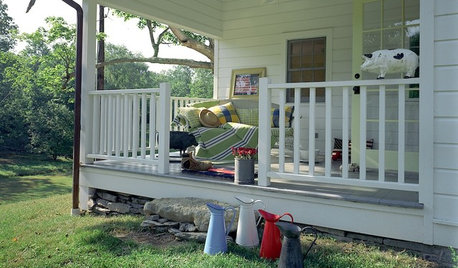

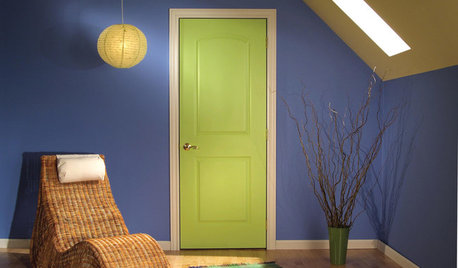
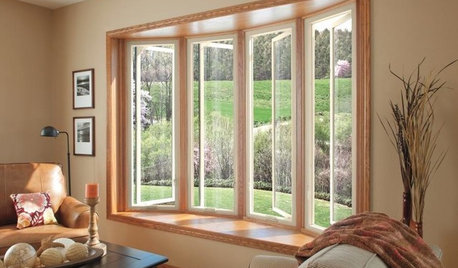

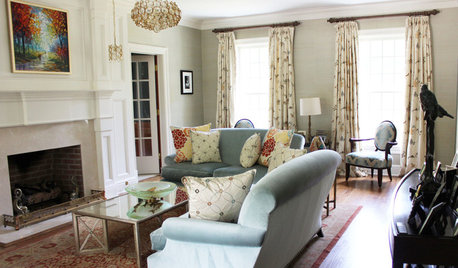










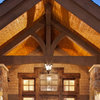

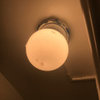
brickeyee